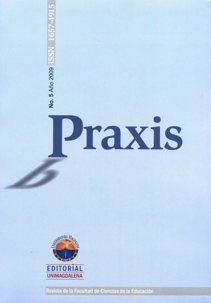George Orwell y 1984: una visión personal
Contenido principal del artículo
Resumen
Descargas
Detalles del artículo
Citas
Atkins, J. (1954). George Orwell. London: John Calder.
Burgess, A. (1978). 1985. Boston: Little Brown.
Deutscher, I. (1974). 1984 – “The Mysticis of Cruelty” in Williams R. George Orwell: A Collection of Critical Essays. New Jersey: Englewood Cliffs.
Fromm, E. (1991). Afterword to 1984. New York: American Library.
Howe, I. 2nd Ed. (1982). Orwell´s 1984 – Texts, Sources, Criticism. (3d. ed.). New York: Harcourt, Brace & Jovanovich.
Zwerdling, A. (1974). Orwell and the left. New Haven: Yale U.P.
Alldritt, K. (1969). The Making of George Orwell. London: E. Arnold.
Atkins, J. A. (1954). George Orwell: A Literary Study. London: J. Calder.
Gross, M., ed. (1972). The World of George Orwell. New York: Simon & Schuster.
Hammond, J.R. (1982).George Orwell Companion. New York: St. Martin´s Press.
Hollys, C. (1965). A Study of George Orwell: The Man and His Works. London: Hollis & Carter.
Hynes, S. L., Comp. (1971). Twentieth Century Interpretations of 1984 Englewood Cliffs. N.J.: Prentice-Hall.
Meyers, J. (1975). George Orwell: The Critical Heritage. Boston: R.K. Paul.
Meyers, J. (1977). A Reader´s Guide to George Orwell. Totowa. New York: Littlefield, Adams.
Rees, R. (1961). George Orwell: Fugitive from the Camp of Victory. London: Secker & Warburg.
Sandison, A. (1974). The Last Man in Europe. New York: Barnes & Noble.
Stansky, P. & Abrahams, W. (1990). Orwell: The Transformation New York: Knopf.
Steinhoff, W. R. (1976). George Orwell and the Origins of 1984. Ann Arbor: University of Michigan Press.
Thomas, E. M. (1965). O r w e l l. London: Oliver & Boyd.
Trilling, Lionel. (1995) George Orwell and the Politics of Truth. The Opposing Self: Nine Essays in Criticism. New York: Viking Press.
Williams, R. (1971). George Orwell. New York: Viking.
Williams, R. Ed. (1974). George Orwell: A Collection of Critical Essays. Englewood Cliffs. N.J.: Prentice-Hall.
Woodcock, G. (1996). The Crystal Spirit: A Study of George Orwell Boston: Little, Brown.

